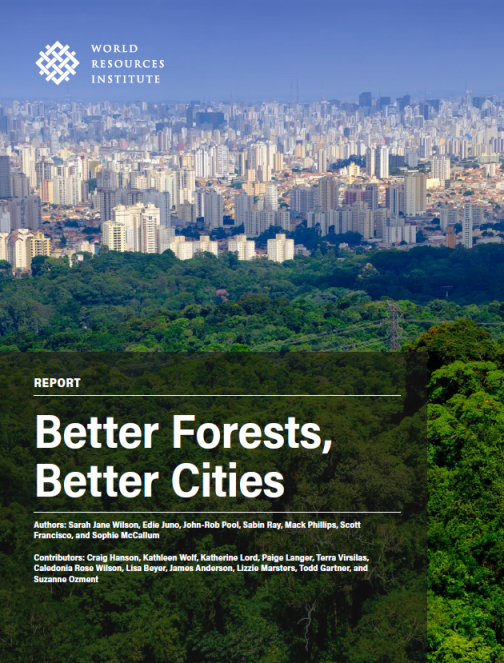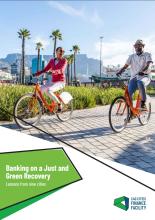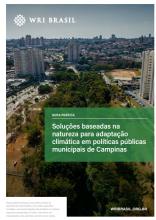Report

Better Forests, Better Cities
This report evaluates how forests both inside and outside city boundaries benefit cities and their residents, and what actions cities can take to conserve, restore and sustainably manage those forests.
A growing body of scientific evidence shows that conserving, restoring, and sustainably managing forests can provide robust, low-cost infrastructure solutions to help cities and their leaders meet the myriad demands of growing urban populations, such as clean and reliable fresh water, safe and healthy environments, and protection from natural disasters.
This WRI report evaluates how and when forests – inside, near, and far away from cities – contribute to health and well-being, water security, climate change mitigation, and biodiversity conservation benefits for cities and their residents.
READ MORE

Banking on a Just and Green Recovery
This report provides nine case studies of cities that are finding innovative ways to finance and implement projects with a focus on inclusion, equity, and a green and just recovery.

Engaging the Private Sector on Nature-Based Solutions
This webinar examines best practices and examples of city-business collaboration on NBS to understand the benefits, challenges and opportunities created from private sector engagement in Freetown’s tree-planting campaign.

How Ningbo is Paving the Way for Sustainable Development and Tourism
With the revitalization of Hangzhou Bay Wetland Park, Ningbo is proving the value of biodiversity-focused urban development.

Soluções baseadas na natureza para adaptação climática em políticas públicas municipais de Campinas
Como Campinas priorizou formalmente as SBN em seus Planos Municipais do Verde, de Recursos Hídricos e de Educação Ambiental.
